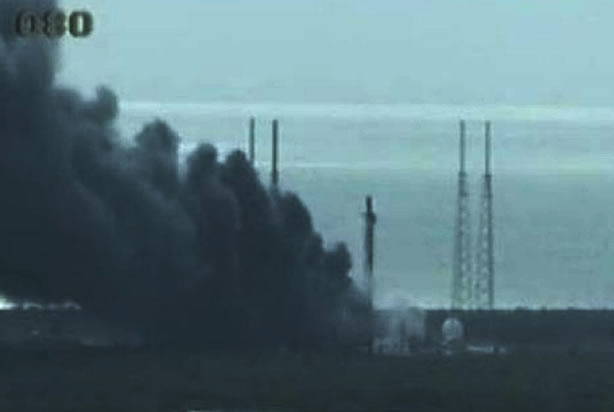A SpaceX test launch ahead of what was supposedly to be the company’s Saturday delivery of Facebook’s first satellite into orbit went catastrophically wrong on Thursday, as the Falcon 9 rocket exploded with a blast that was felt for miles around.
Its payload — an Amos-6 communications satellite that included the ability to provide Internet access to Saharan Africa via Facebook’s Internet.org program — was destroyed in the explosion. According to SpaceX, “in preparation for today’s standard pre-launch static fire test, there was an anomaly on the pad resulting in the loss of the vehicle and its payload.”
There were no injuries, as the pad had already been cleared for pre-launch procedures. The Brevard County Emergency Management Office announced in a tweet that the explosion posed no further threat to the public.
SpaceX has been using its collection of Falcon 9 rockets in an attempt to create a fleet of reusable vehicles both for the purposes of private space flight and to re-supply the International Space Station. Earlier this year, it successfully landed a Falcon 9 nine on a water-based platform, proving the potential viability of the project.
It is not known at this time what caused the explosion.


